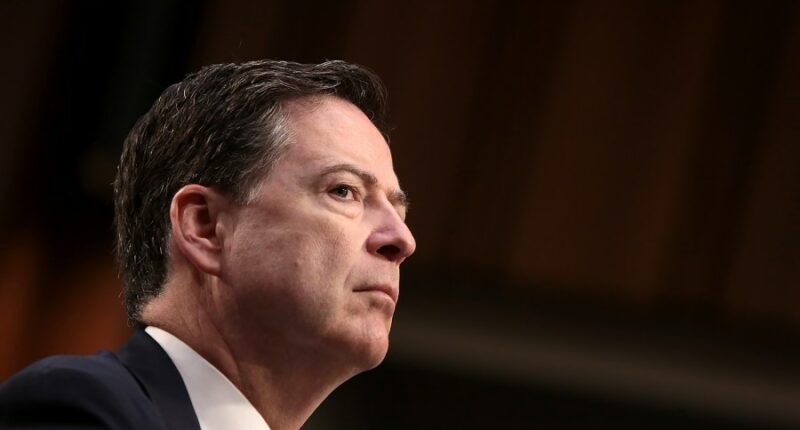Share this @internewscast.com

Former FBI Director James Comey will not testify as part of the Republican investigation into Jeffrey Epstein.
On Tuesday, Comey was slated to offer his deposition to the House Oversight and Government Reform Committee, which is delving into Epstein, the deceased sex offender with a history of crimes involving minors. Committee Chair James Comer (R-Ky.) had issued a subpoena for Comey’s testimony back in August as part of this ongoing investigation.
But in a letter to Comer dated Oct. 1, Comey said he simply has no “knowledge” or “information relevant to the Committee’s investigation.”
“I offer this letter in lieu of a deposition that would unproductively consume the Committee’s scarce time and resources,” Comey wrote.
Having held the position of deputy attorney general from 2003 to 2005 and then serving nearly four years as the FBI director starting in September 2013, Comey’s tenures are under scrutiny by the Oversight panel. The committee aims to uncover Epstein-related information dating from 1990 up until his imprisonment and subsequent death in 2019.
Comey stated, “During my tenure at the Department of Justice or the FBI, I recollect no exchanges or information pertaining to Jeffrey Epstein or Ghislaine Maxwell.” Maxwell, who was Epstein’s long-time partner and accomplice, is currently serving a 20-year sentence for her involvement in the trafficking of minors for sexual purposes.
Comey’s letter comes under the scope of a federal law which makes it illegal, and punishable by incarceration, to make false statements to government officials. Considering this, Comer accepted Comey’s declaration and retracted the subpoena for his testimony.
Comey’s response echoed those from former Attorneys General Eric Holder and Merrick Garland, who were similarly subpoenaed to testify before the panel. Comer has recently rescinded those subpoenas as well.
In addition, high-profile figures such as former President Bill Clinton and former Secretary of State Hillary Clinton have been subpoenaed for private discussions with the Oversight Committee this month. It remains uncertain whether these depositions will occur as planned. Comer’s spokesperson refrained from making any remarks on the matter.
The maneuvers come amid an escalation between competing strategic approaches to the Epstein investigation.
Top Republican leaders, including President Trump and Speaker Mike Johnson (R-La.), want to continue the Oversight probe, arguing that it represents the most effective way to get information in a timely manner. As part of that effort, Comer has already released thousands of documents obtained under subpoena from the Justice Department and Epstein’s estate.
Critics of that approach argue that Trump’s Justice Department is cherry-picking the documents it delivers to Comer to protect wealthy Republican donors and Trump associates. Those lawmakers are pushing legislation to require the administration to publicize all the government’s files on Epstein and Maxwell an effort that’s been endorsed by a number of Epstein’s victims.
Johnson has refused to bring that legislation to the floor. But the lead sponsors of the bill are on the cusp of forcing that vote through a discharge petition. That procedural gambit has 217 signatures one shy of the 218 it needs to force the vote and Rep.-elect Adelita Grijalva (D-Ariz.) has said she’ll sign the petition as soon as she’s sworn into her seat.
Amid the government shutdown, however, Johnson has canceled all House votes since Grijalva was elected, and he’s refused to swear her in during the chamber’s pro forma sessions. That’s led to accusations that the Speaker is stalling to protect Trump by delaying the success of the discharge petition.











